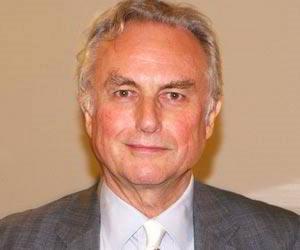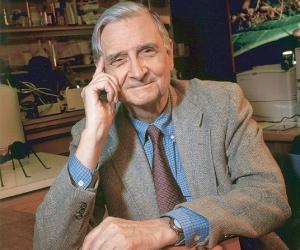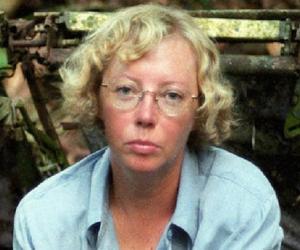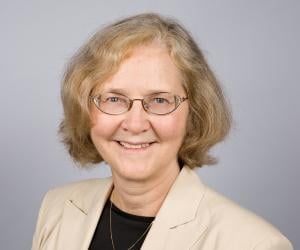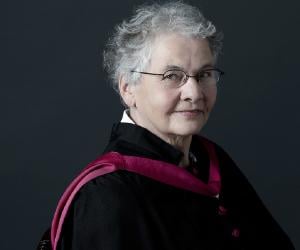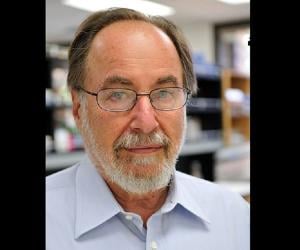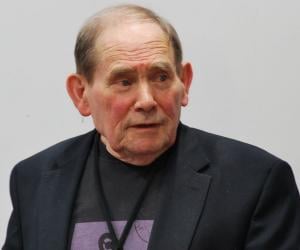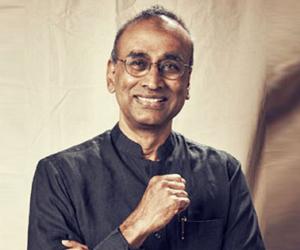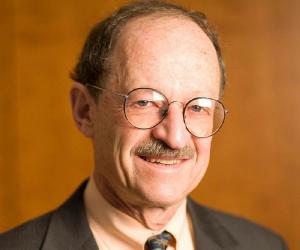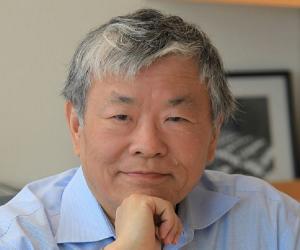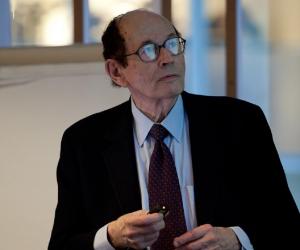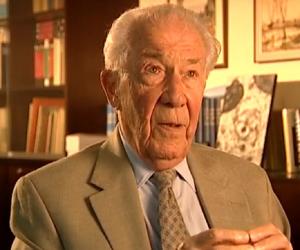Richard Dawkins is a British ethologist, author, and evolutionary biologist. He first achieved popularity after publishing his book, The Selfish Gene, which is credited with popularizing the gene selection theory. The book is also credited with introducing the term meme. In 2006, he established the Richard Dawkins Foundation for Reason and Science to promote secularism and scientific literacy.
E. O. Wilson is an American naturalist, biologist, and writer. An influential biologist, Wilson has earned several nicknames, such as The Darwin of the 21st century. He has also been referred to as the father of biodiversity and the father of sociobiology. In 1995, he was ranked among the most influential American personalities by Time magazine.
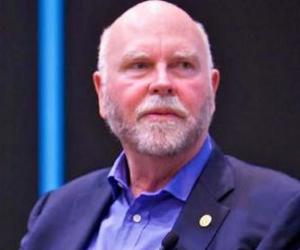
Craig Venter biotechnologist and businessman best known for leading the first draft sequence of the human genome. He is the founder of Celera Genomics and the Institute for Genomic Research (TIGR) and the co-founder of Human Longevity Inc. He received the Dan David Prize for his contribution to genome research and is a member of the American Philosophical Society.
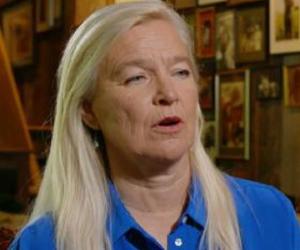
Nell Newman is a biologist, environmentalist, and former child actress. An ardent supporter of sustainable agriculture, Newman is credited with founding a pet food and organic food production company called Newman's Own. For her environmental leadership, Newman was honored with the Rachel Carson Award in 2014. In 2017, she was made an inductee of the Specialty Food Hall of Fame.
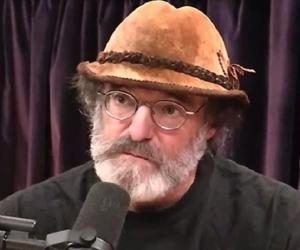
Paul Stamets is an American entrepreneur and mycologist. An ardent supporter of mycoremediation and medicinal fungi, Stamets sells various mushroom products. In 2014, he was honored by the American Association for the Advancement of Science with an Invention Ambassador award. In 2019, he contributed immensely to the creation of a documentary film titled Fantastic Fungi.

Renowned James Lovelock is best known for propagating the Gaia hypothesis, which states that every living being on planet Earth is part of a single self-regulating superorganism. He is also known for his long association with NIMR, London, and Harvard University and has over 50 patents under his name.
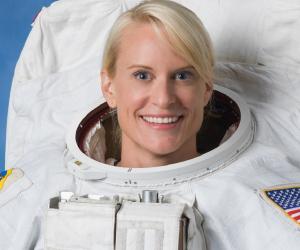
Kathleen Rubins is a microbiologist and NASA astronaut. In 2016, she became the 60th woman to fly in space when she launched on a Russian Soyuz spacecraft. She traveled to the International Space Station and returned to Earth after a few months. She has spent a total of 300 days, 1 hour, and 31 minutes in space.

Nobel Prize-winning Australian-American biochemist and molecular biologist Elizabeth Blackburn is best known for co-discovering the enzyme telomerase. She was allegedly removed from the American President's Council on Bioethics over her support for stem cell research, which went against the government. She has honorary doctorate degrees from Harvard, Yale, and Princeton.
Christiane Nüsslein-Volhard is a German developmental biologist. She studied at the University of Tübingen where she earned a Ph.D. for her research on protein–DNA interactions. Together with biologist Eric Wieschaus and geneticist Edward B. Lewis, she received the Nobel Prize in Physiology or Medicine in 1995. She is also a recipient of the Gottfried Wilhelm Leibniz Prize.
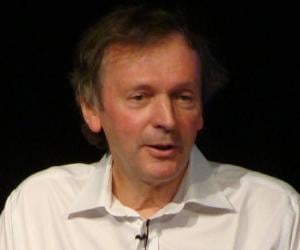
Rupert Sheldrake is an English author best known for his research in the field of parapsychology. He is credited with proposing the concept of morphic resonance, which has been categorized as pseudoscience by mainstream scientists. Rupert Sheldrake is also known for his work encompassing paranormal subjects like telepathy, precognition, and the psychic staring effect.
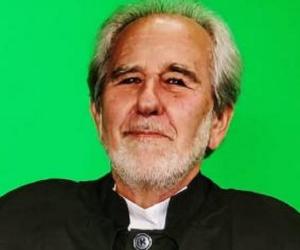
Bruce Lipton is a developmental biologist. He is best known as the author of the book The Biology of Belief, in which he claims that beliefs control human biology rather than DNA and inheritance. He earned a Ph.D. in developmental biology from the University of Virginia and began his academic career. He received the 2009 Goi Peace Award.
David Baltimore is an American university administrator and biologist. He is currently serving as President Emeritus at the California Institute of Technology (Caltech). He won the 1975 Nobel Prize for Physiology or Medicine for his discoveries concerning the interaction between the genetic material of the cell and tumor viruses. In 1999, he was honored with the National Medal of Science.
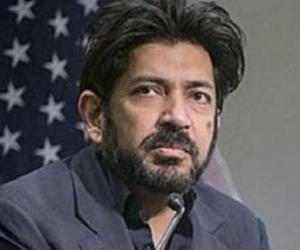
Best known as the author of the Pulitzer Prize-winning book The Emperor of All Maladies and the New York Times bestseller The Gene, Siddhartha Mukherjee is an Indian-American oncologist and a Columbia University professor. He is also a former Rhodes scholar, a Padma Shri winner, and a Stanford alumnus.
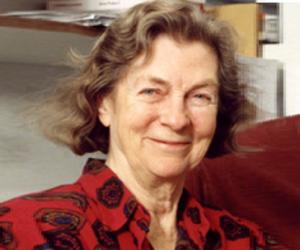
Geneticist Anne McLaren is remembered for her pioneering research in embryology that paved the way for further research in fertility treatments such as in-vitro fertilization. The Royal Society fellow had also appeared as a child actor in the film adaptation of the H.G. Wells novel Things to Come.
Sydney Brenner was a South African biologist who made important contributions to various areas of molecular biology, including the genetic code. Brenner shared the 2002 Nobel Prize in Physiology or Medicine with Sir John E. Sulston and H. Robert Horvitz. Sydney Brenner is credited with founding the Molecular Sciences Institute, which is situated in the United States of America.
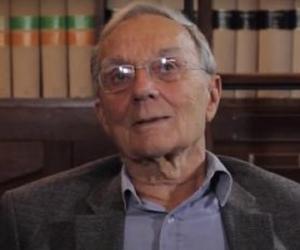
Pierre Joliot is a French biologist best known for his research work at the French National Centre for Scientific Research (CNRS). From 1985 to 1986, he served as the scientific advisor to the then prime minister of France.
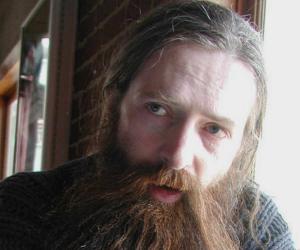
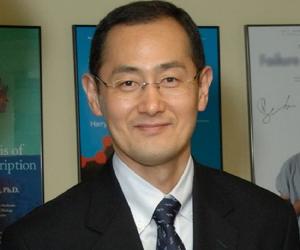
Nobel Prize-winning Japanese scientist Shinya Yamanaka is known for his contribution to stem cell research. He developed the induced pluripotent stem cell, a stem cell that can be created directly from a somatic cell. He is a professor at Kyoto University’s Institute for Frontier Medical Sciences and has held several senior research positions.
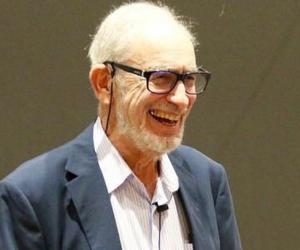
Paul R. Ehrlich is a biologist best known for the 1968 book The Population Bomb, which he co-authored with his wife, Anne. He kindled controversy for his views on the consequences of population growth in a world with limited resources. He has been called an "irrepressible doomster” by his critics, while his supporters credit him for spreading concern about overpopulation.
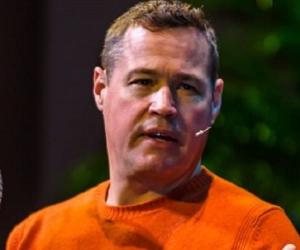
Jeff Corwin is a biologist and wildlife conservationist. He is most popular for hosting TV shows on nature, such as Disney Channel's Going Wild With Jeff Corwin and The Jeff Corwin Experience on Animal Planet. He studied at the University of Massachusetts Amherst. He has been involved in conservation since his student days and lectures on wildlife, ecology, and conservation.
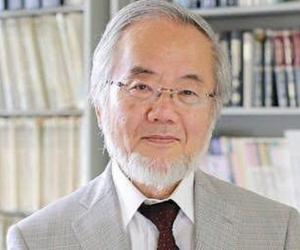
Nobel Prize-winning Japanese cell biologist Yoshinori Ohsumi is best known for his research on autophagy. A Rockefeller University alumnus, he now teaches at Tokyo Tech’s Institute of Innovative Research. He is also known for his pathbreaking contribution to topics such as the DNA, cell, and embryo.
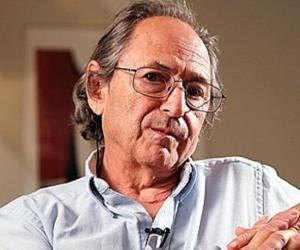
Michael Levitt is a biophysicist who has been serving as a Stanford University professor of structural biology since 1987. Along with Arieh Warshel and Martin Karplus, Levitt received the Nobel Prize in Chemistry in 2013. He has also received several other awards, including the DeLano Award for Computational Biosciences and was inducted into the National Academy of Sciences in 2002.
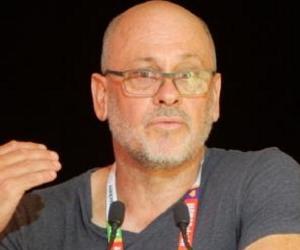
Tim Flannery is an Australian paleontologist, mammalogist, environmentalist, explorer, conservationist, and public scientist. Tim Flannery is credited with discovering over 30 mammal species. He is also credited with co-founding Climate Council, a non-profit organization that aims at providing accurate information on climate change to the Australian public. In 2007, Tim Flannery was named Australian of the Year.
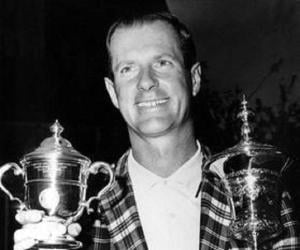
Nobel Prize-winning Irish-American biologist William C. Campbell is best known for his pioneering research on the prevention of parasitic infections in humans and other animals. The Trinity College alumnus later studied at the University of Wisconsin and then worked for Merck. He has also been associated with Drew University.
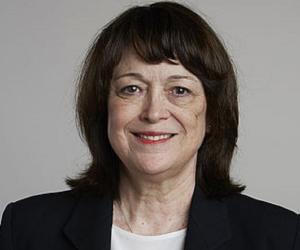
Linda B. Buck is an American biologist who received the 2004 Nobel Prize in Physiology or Medicine for her work on olfactory receptors; she shared the award with molecular biologist Richard Axel. An important and influential biologist, Linda has also won several other awards, such as the Takasago Award, Unilever Science Award, Lewis S. Rosenstiel Award, and R.H. Wright Award.
Venkatraman Ramakrishnan is a British-American structural biologist whose research on the function of the ribosome earned him the 2009 Nobel Prize in Chemistry which he shared with Ada Yonath and Thomas A. Steitz. From 2015 to 2020, he served as the president of the Royal Society.
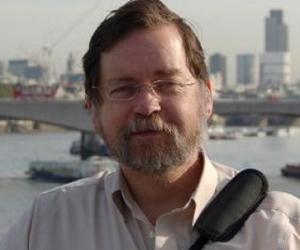
PZ Myers is a biologist known for founding the Pharyngula science blog. His blog is one of the top-ranked blogs by a scientist. A "science geek" from an early age, he obtained a Ph.D. in biology from the University of Oregon. As an academician, he has taught at the University of Oregon, the University of Utah, and Temple University.
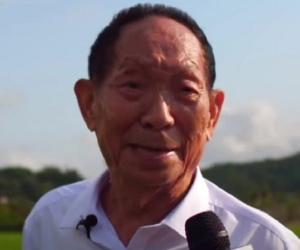
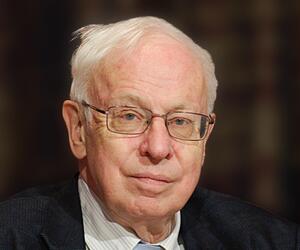
Tomas Lindahl is a Swedish-British scientist who specializes in cancer research. He is best known as the winner of the 2015 Nobel Prize in Chemistry, which he received alongside Turkish chemist Aziz Sancar and American chemist Paul L. Modrich. Over the years, Tomas Lindahl has also been honored with other prestigious awards such as the Royal Medal and Copley Medal.
Harold E. Varmus is an American scientist who shared the 1989 Nobel Prize in Physiology or Medicine with J. Michael Bishop for their discovery of the retroviral oncogenes' cellular origin. From 1993 to 1999, he served as the director of the National Institutes of Health. From 2010 to 2015, he served as the director of the National Cancer Institute.
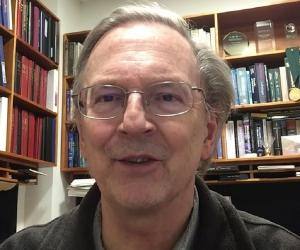
Nobel Prize-winning Canadian-American biochemist and geneticist Jack W. Szostak revolutionized medical science with his research on the manipulation of genes. The Cornell alumnus is credited with creating the first yeast artificial chromosome. He has also taught at the Harvard Medical School. In spite of being Polish, he doesn’t speak the language.
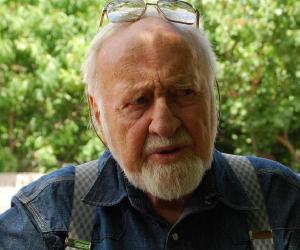
Known for co-developing the concept of a sustainable form of agriculture called the permaculture, Bill Mollison was one of the most influential ecological pioneers, authors, and teachers. Also the founder of The Permaculture Institute (Tasmania) and co-publisher of a book called Permaculture One, he is credited with training thousands of people the art of growing food without harming the nature.
Susumu Tonegawa is a Japanese scientist known for his discovery of the genetic mechanism that produces antibody diversity. For this work, he received the Nobel Prize for Physiology or Medicine in 1987. Even though he won the coveted award for his work in immunology, he is a molecular biologist by training. He now studies neuroscience.
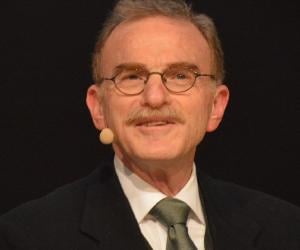
Co-winner of the 2013 Nobel Prize for Physiology or Medicine, American cell biologist Randy Schekman is best known for his "ground-breaking work on cell membrane vesicle trafficking, a major transport system in our cells." Author of several books on Cell and Developmental Biology, he has also served as the editor of several scientific magazines.

Barry Commoner was a cellular biologist. A leading ecologist of his era, he was one of the founders of the modern environmental movement. He opposed nuclear weapons testing and helped bring about the Nuclear Test Ban Treaty of 1963. He was a recipient of the 1970 International Humanist Award. As a political activist, he founded the Citizens Party in 1980.
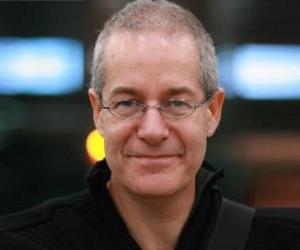
Massimo Pigliucci is an academician currently serving as a professor of philosophy at the City College of New York. A staunch critic of pseudoscience and creationism, he advocates for secularism and science education. He was once the co-host of the Rationally Speaking Podcast. He often writes on topics, such as climate change denial, pseudoscience, intelligent design, and philosophy.
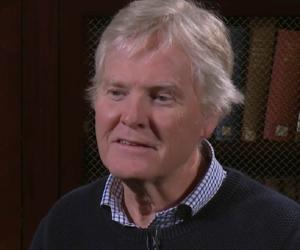
Michael W. Young is a biologist and geneticist. He has spent several years studying genetically controlled patterns of sleep and wakefulness within the fly species Drosophila melanogaster. Along with Jeffrey C. Hall and Michael Rosbash, he was awarded the 2017 Nobel Prize in Physiology or Medicine. His wife, Laurel Eckhardt, is also a biologist and the couple often collaborates professionally.
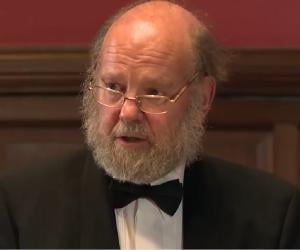
British biologist Ian Wilmut revolutionized embryology by leading the team of researchers who successfully created the first cloned mammal, the sheep named Dolly. A leading proponent of cryopreservation, he also implanted the first calf embryo, Frostie, in a surrogate cow. He was later knighted for his achievements.
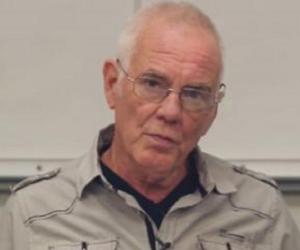
Robert Trivers is an American sociobiologist and evolutionary biologist. He is often counted among the most influential and important evolutionary theorists alive. Trivers' fundamental analysis of social evolution earned him the Crafoord Prize in Biosciences. A former faculty member of Harvard University and the University of California, Santa Cruz, Trivers is currently serving as a faculty member at Rutgers University.
Gerald Edelman was an American biologist best remembered for winning the Nobel Prize in Physiology or Medicine in 1972 for his work on the immune system; he shared the award with Rodney Robert Porter. Gerald Edelman is also credited with founding a nonprofit research center named The Neurosciences Institute, where he served as the director.
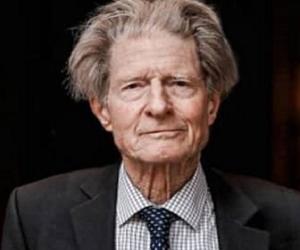
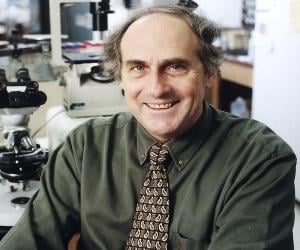
Canadian cell biologist and immunologist Ralph M. Steinman is best remembered for his association with the Rockefeller University and for his co-discovery of the dendritic cell and its role in strengthening the immune system. Unfortunately, he died of pancreatic cancer shortly before the announcement of his Nobel Prize win.
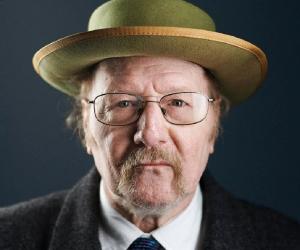
Jeffrey C. Hall is an American chronobiologist and geneticist, currently serving as Brandeis University's Professor Emeritus of Biology. He is credited with conducting extensive research on the behavior and neurology of Drosophila melanogaster (fruit fly), which revealed certain mechanisms of the circadian clocks. He received the 2017 Nobel Prize in Physiology or Medicine along with Michael Rosbash and Michael Young.
Christian de Duve was an English-born Belgian cytologist and biochemist. For his discoveries of two cell organelles, peroxisome and lysosome, he shared the 1974 Nobel Prize in Physiology or Medicine with Albert Claude and George E. Palade. He was the founder of the International Institute of Cellular and Molecular Pathology in Brussels, which was later renamed in his honor.
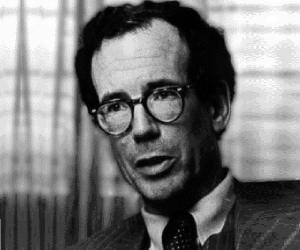
Former Stanford University president and renowned neurobiologist Donald Kennedy had also been the chief editor of Science and the FDA commissioner. He is best remembered for his research on motor activity and the central nervous system, and his memoir, A Place in the Sun. He died of COVID-19 at age 88.
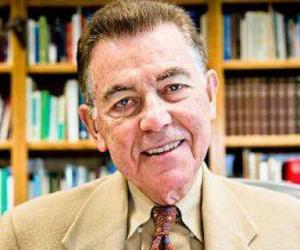
Francisco J. Ayala is a Spanish-born American evolutionary geneticist and molecular biologist, best known for his investigation on the process of genetic variation and natural selection at molecular level. He also undertook research on public health, providing new ideas on the prevention and treatment of diseases and expounded how Darwin’s theory of evolution is well-matched to religious theory of creation.
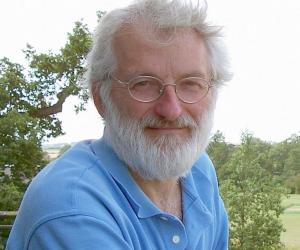
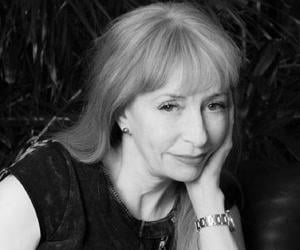
Apart from being a successful scientist with a focus on neurodegenerative diseases such as Parkinson's disease and Alzheimer's disease, Susan Greenfield teaches pharmacology at the Lincoln College, Oxford. She is also part of the House of Lords and has penned a sci-fi novel. She supports causes such as Dignity in Dying, too.
